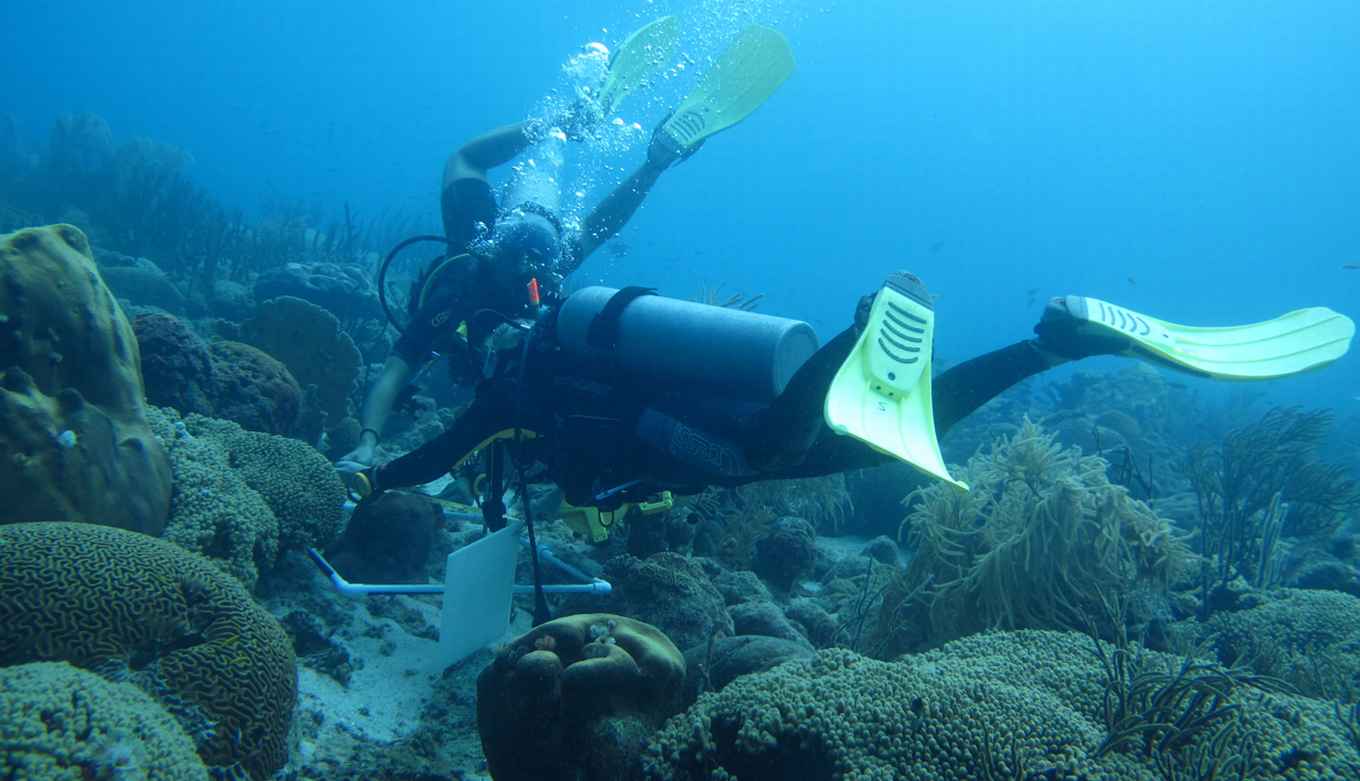Large grant for UvA research in Caribbean
7 January 2021

In this funding round, the emphasis is on the structural strengthening of the knowledge system and the embedding of scientific research in the Caribbean part of the Kingdom of the Netherlands. NWO wants to realise that objective by means of these two large multidisciplinary research programmes that will be realised and embedded in the Caribbean region. The research programmes focus on issues that are of great societal and scientific importance for the Caribbean region, and facilitate the transfer of knowledge via education and outreach. This is the first time that NWO has funded programmes of this size in the Dutch Caribbean.
The two awarded projects are:
SEALINK
Programme Chair: Prof dr Mark Vermeij (IBED - University of Amsterdam, CARMABI Curaçao)
Land, Sea, and Society: The SEALINK Program will create the first comprehensive understanding of ocean pollution and coral reef health in the Dutch Caribbean. We will follow water and pollutants (including sewage, fertilizer, and human pathogens) from land to sea, and track how water motion and marine organisms move and change these substances. We will also measure coral reef growth in 3D. This information will be used in computer simulations to create new conservation scenarios with community input. We will also study how community members use scientific information, which will help improve coral reef education and conservation globally.
Island(er)s at the Helm
Programme Chair: Dr Francio Guadeloupe (Royal Netherlands Institute of Southeast Asian and Caribbean Studies KITLV; University of Amsterdam)
Since the first occupation of the islands, hurricanes and the devastation of coastal areas have significant ecological and social implications for the (Dutch) Caribbean. These are deeply impacting the basic living conditions (water, food, shelter) and heritage of the island inhabitants. This requires immediate action! Island(er)s at the Helm brings together researchers and societal partners to combine technical, traditional, and contemporary knowledge practices to co-create sustainable and inclusive strategies for social adaptation to these climatic challenges. In parallel, a trans-Atlantic academic platform and regional expertise center, will be developed fostering research-based education on climate challenges for the islands.